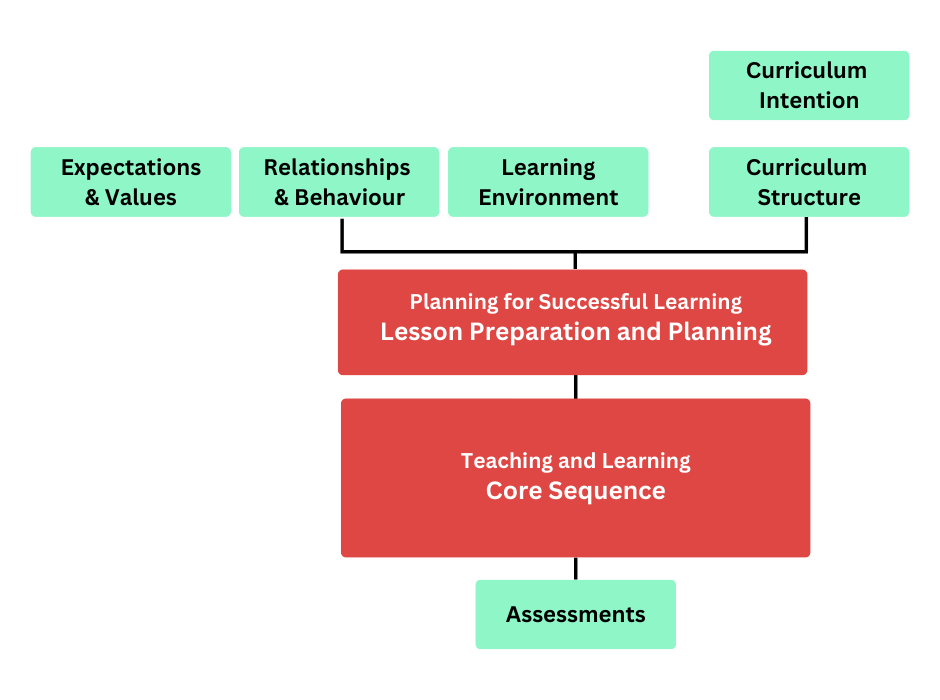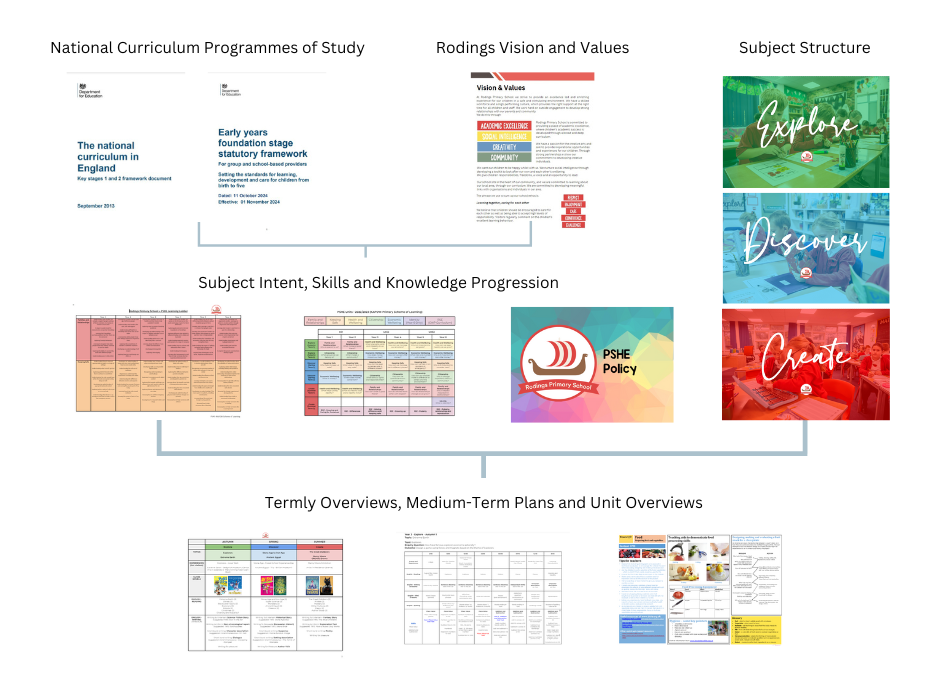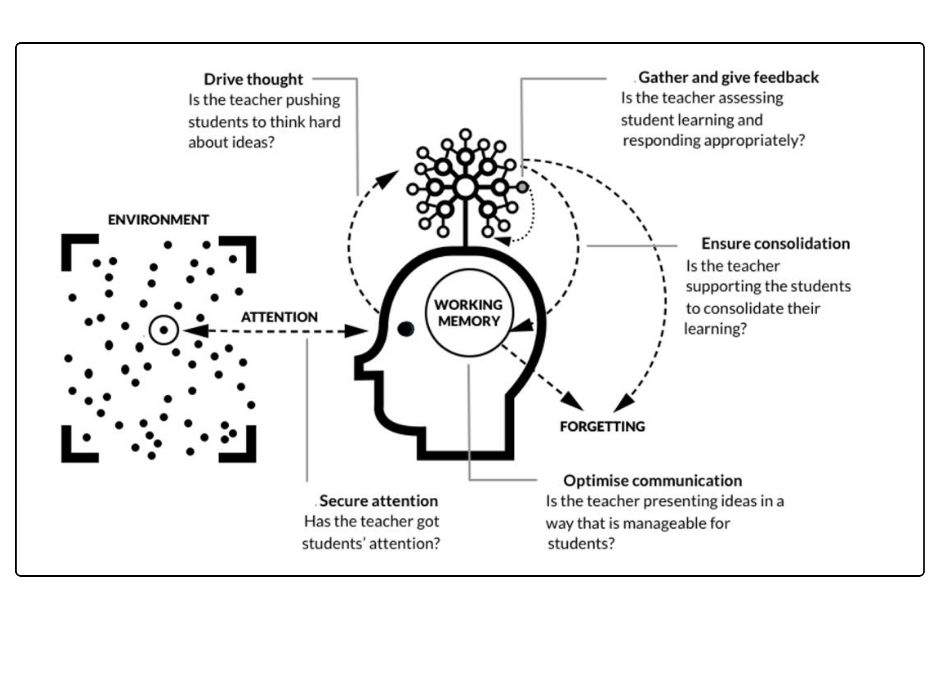Our Approach
Our Mission
At Rodings Primary School we strive to provide an excellence led and enriching experience for our children in a safe and stimulating environment. We have a skilled workforce and a high performing culture, which provides the right support at the right time for all children and staff. We work hard on outside engagement to develop strong relationships with our parents and community.
At Rodings Primary we acknowledge that Teaching and Learning is incredibly complex. Our teachers have a range of experience and therefore a range of abilities, but we know that we can all improve and get better, but ultimately it is about improving our mental models and a clear understanding of how and when to effective strategies and techniques, but also why we use them. Only through this and clear improvement cycles do things get better.
We have endeavoured to provide a clear and coherent structure to all areas of teaching and learning - from providing guidance and expectations around the broad, but vital areas of: Expectations & Values, Relationships & Behaviour, Learning Environment and Curriculum Structure, to providing clear and sequential steps to improve classroom practice.
The diagram below illustrates how we structure our different components of Teaching and Learning.

Expectations & Values
At Rodings Primary School we strive to provide an excellence led and enriching experience for our children in a safe and stimulating environment. We have a skilled workforce and a high performing culture, which provides the right support at the right time for all children and staff. We work hard on outside engagement to develop strong relationships with our parents and community
We do this through

For more information visit our Vision and Values page
Relationships & Behaviour
At Rodings, we believe in the importance of relationships, ensuring learners feel valued, safe and secure, providing a sense of connection with a member of staff and a belonging to the whole school community. Our school reflects the values of the Essex Approach to understanding behaviour and supporting emotional wellbeing known as Trauma Perceptive Practice (TPP)
- Compassion and Kindness
- Hope
- Connection & Belonging
These, alongside our Core Values (Respect, Enjoyment, Care, Confidence and Challenge), are interweaved in all that we do.
Rodings Code of Conduct
- Be Respectful
- Be Safe
- Be Ready to Learn
Strong relationships between staff, learners and families are vital. Our staff are fair and consistent with children (considering individual needs) enabling pupils to feel safe. Equally, our staff are approachable and there to help and we help our children to understand this. It is also recognised that for some children, variance on these processes will be made in order to meet any specific social, emotional, learning or other needs which require a personalised approach and can be based on external recommendations. At Rodings we have adopted and use the relational behaviour model (the approach from TPP).
For more information visit our Behaviour page
Learning Environment
Rodings Primary School educates children aged 4 to 11, maintaining universal expectations across all classrooms—consistency is essential. Our 'Classroom Essentials' create a cohesive approach, allowing both children and adults in the school to understand what to expect and how to manage each classroom effectively.
We have four areas we embed as a school
- Respectful Relationships
- High Expectations
- Positive Classroom
- Promoting Independence
We have outlined the clear and consistent expectations of what each of these look like in our classrooms.
Curriculum Intention
Rodings Primary School is committed to providing a place of excellence and ambition, where children’s personal development and academic success are nurtured through fun and engaging learning. The school aims to provide inspirational experiences through the curriculum so that children’s curiosity and individuality grows. At Rodings, children love learning and are happy and kind. Working in partnership with the whole school community, all at Rodings feel safe and empowered to succeed.
Academic Excellence, Social Intelligence, Creativity and Community are at the heart of everything we do at Rodings. We give each of these pillars equal weighting and through a knowledge-rich curriculum, engaging teaching, great relationships and strong partnerships, we work hard to ensure that Rodings is the best possible primary school experience for every learner. The purpose of our teaching and learning policy is to ensure that:
- There is a high standard of teaching and learning in all classes
- There is consistency of practice within and between year groups
- There is a shared belief in the way teachers teach and children learn
- Everybody is clear about the roles they fulfill
- There is equality of access and opportunity for all children
- There is a clear understanding of how the school’s ethos is evident in practice.
For more information visit our Our Curriculum page
Curriculum Structure
The success and progress of our learners often depend on the careful consideration and planning of lessons or learning sequences. A well-structured lesson is designed for effective delivery, which promotes learning and enhances student outcomes.
Comprehensive subject knowledge is fundamental to our planning process, enabling teachers to implement strategies for 'support' (for those requiring extra assistance to achieve their goals) and strategies for 'stretch' (for those seeking to exceed their current achievements). Lessons are strategically planned to ensure that all learning time is productive and that progress aligns with the intended learning objectives.

The golden thread that is considered throughout the structural planning is the access and support required for our SEND learners, ensuring that reasonable adjustments are made, enabling their specific needs to be met alongside the broad needs of all other children.
Lesson Preparation and Planning
At Rodings, we believe that effective lessons stem from thorough planning, as well as careful lesson preparation. We utilise various schemes, whether purchased or developed internally, meaning that teachers may sometimes deliver lessons crafted by others, whether colleagues or external providers. Additionally, teachers often revisit and reuse plans from previous years, which is why we emphasise both lesson preparation and planning.
The first step in creating effective lessons is ensuring a solid understanding of the content, along with clarity on how it will be delivered. A crucial aspect of responsible and effective teaching is being attentive to the reactions and needs of learners during lessons. We aim to empower teachers to observe more keenly and comprehensively as they instruct. To effectively perceive and understand classroom dynamics, we believe that careful lesson planning is essential. Well-prepared lessons free up cognitive resources, allowing teachers to focus more on observation.
Every phase of a lesson is significant and presents opportunities to advance learning. By planning and preparing lessons, teachers can enhance their impact. This includes formulating essential questions, selecting the most effective techniques for gauging retention from past lessons, and identifying the best models to clarify widespread misconceptions. These are just a few examples of the myriad decisions teachers face during lessons. By contemplating these elements during the planning and preparation stage, we help alleviate the cognitive load on teachers.
Our goal is to offer staff the chance to collaborate with their colleagues in lesson planning. We recognise that each lesson is unique, so teachers are encouraged to utilise their own templates for lesson plans. We provide guidance and suggestions for crafting effective lessons. Lesson preparation involves revisiting the plan and thoughtfully determining what is needed to maximise its effectiveness for the specific class. While this is a complex aspect of Teaching and Learning, it is crucially important.
Core Sequence
Our fundamental principles for teaching and learning are closely aligned to Steplab's Core Steps Sequence. These principles play a significant role in planning learning opportunities, delivering instruction, and assessing student understanding.
The Core Sequence moves from broad to deep. It starts with broad areas of teaching – strands – down through more specific classroom goals and finishes at precise, granular action steps. The Core Sequence is designed to be thorough: it covers a great many of the key areas of effective classroom teaching, no matter subject or age range.
What is a strand?
The sequence is built from five central strands. Each strand is built around a fundamental learning problem: a classroom problem that is universal for teachers – no matter their subject or age range - and intrinsic to the process of teaching. Every teacher spends their entire career addressing these problems, and as such they are the most appropriate foundation for any T&L sequence. The five strands are as follows

- Secure attention - has the teacher got students’ attention?
- Optimise communication - is the teacher presenting ideas in a way that is manageable for students?
- Drive thought - is the teacher pushing students to think hard about ideas?
- Gather and give feedback - is the teacher assessing student learning and responding appropriately?
- Ensure consolidation - is the teacher supporting the students to consolidate their learning
These five fundamental learning problems help to support our Teaching and Learning Improvement Cycles, and are organised into a diagnostic chain:
Attention → Communication → Thought → Feedback → Consolidation
Within each strand of the Steplab core sequence are a set of more specific classroom goals.
What is a goal?
Each strand includes a series of classroom goals. A classroom goal is a more specific area of teaching, but could still be the focus of coaching for a sustained period of time.
An example of a goal within the ‘Secure attention’ strand is to ‘Establish an entry routine’. In our weekly sessions we may focus on a particular goal, and look at different action steps; alternatively, we may spend multiple weeks looking at the action steps for a goal. this will depend upon the need/focus.
Within classroom goals are granular and precise action steps.
What is an action step?
Each goal contains multiple action steps. Each step is an action that a teacher can take to achieve a classroom goal. All the steps are:
- Precise and granular.
- Focused on teacher actions, rather than simply on improving what they think or know.
- Underpinned by evidence or a shared consensus of impact.
A teacher/group of teachers may be working within the ‘Secure attention’ strand, and focusing on the goal of ‘Establishing an entry routine’. Within this, there are multiple steps that they could choose to work on. These steps often build in difficulty. Some examples of these steps are:
- Create a silent starter: Create a task that students can complete in silence as they enter, without any help. A recap of previous learning can work well
- Set clear entry expectations: Explicitly outline to students the expectations for entering the classroom: "Morning, class. Remember, walking in silently and all pens moving within 45 seconds. Thanks."
- Manage classroom entry: Stand at the threshold of the classroom so that you can see both inside and outside the classroom, control the flow of students, and monitor them during entry
Toolkit
At Rodings Primary School, our goal is to stay well-informed about effective teaching and learning strategies and pedagogical practices. We view our approaches to teaching and learning as ‘evidence-informed,’ while also embracing the wealth of ‘experience-informed’ practices that exist within our school.
When making decisions about teaching and learning, we often refer to cognitive science principles. It's essential to grasp how concepts like over-learning and Cognitive Load Theory influence the learning process, ensuring that we implement strategies backed by the science of learning. We have worked hard to create a coherent approach to Teaching and Learning, and in particular to codify and decompose what great teaching looks like with our context. We strive to equip teachers with techniques that they can apply within their classroom contexts, ensuring they understand not just which techniques are most effective but the confidence and understanding of when to use them and why.
We have drawn upon best practice within Rodings as well as assimilating techniques from well resarched sources. The strategies/techniques implemented in the classroom to enhance learning are frequently drawn from Doug Lemov's Teach Like a Champion, Michael Feely and Ben Karlin’s The Teaching and Learning Playbook, Bruce Robertson’s The Teaching Delusion, as well as Tom Sherrington and Oliver Caviglioli's Teaching Walkthrus series. These work alongside the Core Sequence which we have adapted from Steplab.
These techniques form a significant part of the rest of this document and make up our Teaching and Learning Toolkit. These techniques are covered and practised in our weekly PD sessions and then implemented in classrooms with feedback given.
For each strand of the Core Sequence we have mapped out specific techniques we want teachers to learn, practice, apply. These are taken from
- Steplab
- Ordinarily Available
- The Teaching and Learning Playbook
- Teach Like a Champion
Assessments
We use continuous informal assessment to monitor and respond to evidence of learning. This includes:
- Daily Review
- Weekly Review
- Questioning
- Discussion
- Observing performance
We blend this with periodic formal assessment, which has both formative and summative functions. This includes:
- End-of-term Standardised Assessments
- End-of-topic Review
- Mid-Year Review
For further information about anything to do with Teaching and Learning please visit our Teaching and Learning Handbook, or contact Mr Crawley
Teaching & Learning Contact
The contact for Teaching & Learning is Darryl Crawley
-
tel: 01279 876288









